Islabikes started back in 2006, when it was based in the corner of a cowshed. It grew into larger premises, and has recently grown again, into what might well be mistaken for a really big cowshed. Hannah went to chew the cud with some of the staff that work there in order to find out what they’re doing that needs so much space.
I’m always surprised when I hear of parents saying ‘I’d never heard of Islabikes’. But if you head to any bike shop, you’re not going to see them on display, as they’re only available directly from the Shropshire HQ, or second (or third, or fourth, or fifth…) hand. Such is the popularity and longevity of their children’s bikes that there is a Facebook Group specifically for the buying and selling of pre loved models.
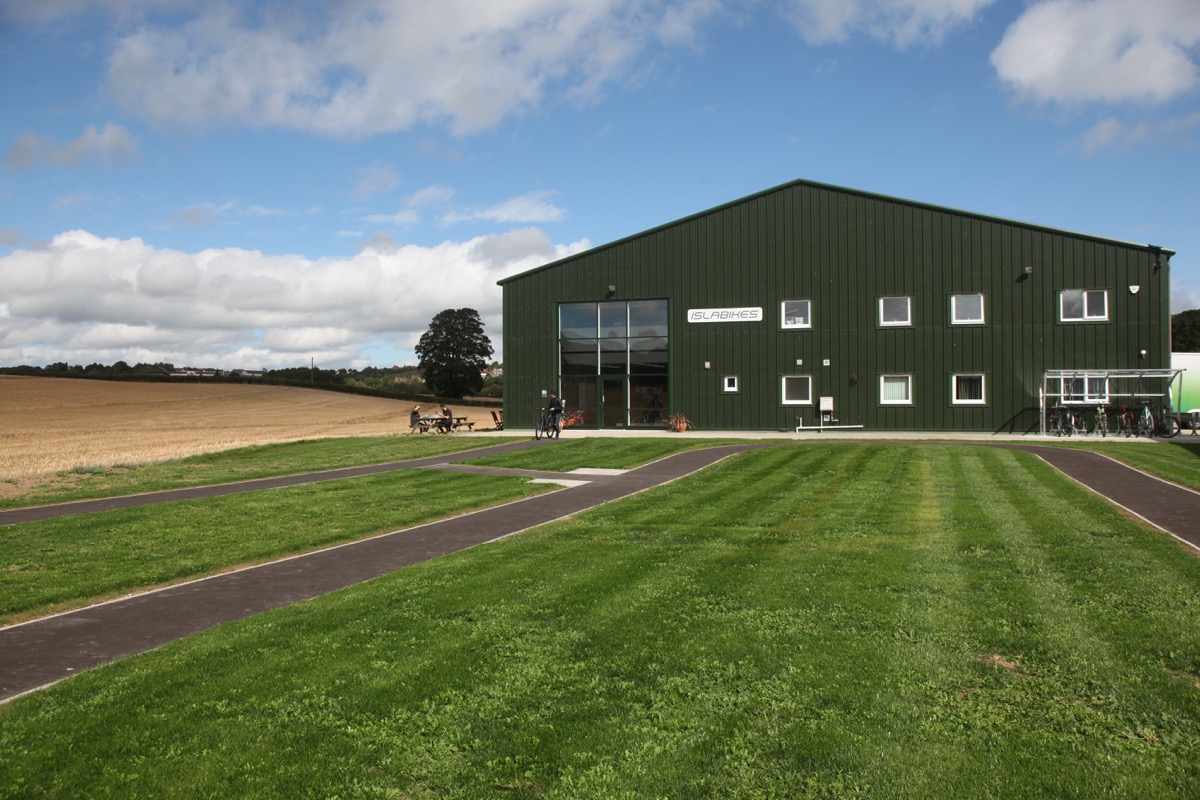
The rest of this feature is only available to Premier or Lifetime subscribers. Please choose a plan to read on.
If you’re not in a bike scene, then, perhaps parents can be forgiven for these lightweight and proportionately sized children’s bikes flying under their radar. And such parents might also be forgiven for squawking ‘How Much?!’ when they see that the price of even a second hand Islabikes is more than they recall spending on their own bike shaped object that resides in their garage. The reality is that often an Islabikes can be resold for little less than it was bought for, so there’s a good chance in the longer term that getting your child an Islabikes will cost as little as £50, but the initial outlay is still there. So what is it that makes them different, and is it worth paying for?
Latest Singletrack Merch
Buying and wearing our sustainable merch is another great way to support Singletrack

When Islabikes started, it was because founder Isla Rowntree couldn’t find bikes she could recommend that her friends buy for their children. The reach on the brakes was too long, the cranks were too wide, the bikes were too heavy. They were so bad, she thought they risked putting children off bikes. Isla set out to build some that fitted children the way (good) adults’ bikes fit adults. This meant taking account of the actual proportions of children’s bodies, rather than just shrinking an adult bike down until it had a saddle low enough for a five year old to get a leg over.
That has been a long and iterative process, and continues today. Gradually Isla has invested in the moulds and designs for proprietary parts to allow better and better fit of the bikes. Initially she developed her own brake levers to allow better reach. Since my own children had their first Islabikes, the models now incorporate tyres developed with Vee (and only available on Islabikes) which make the tyre widths proportionate to the wheel sizes, rather than all children effectively being on a plus-tyre bike. Frames have been refined, finishing kit tweaked, and this year sees the introduction of a new bottom bracket and rear hub standard brought in to deliver a narrower Q-factor on the smallest Cnoc pedal bikes in the range.
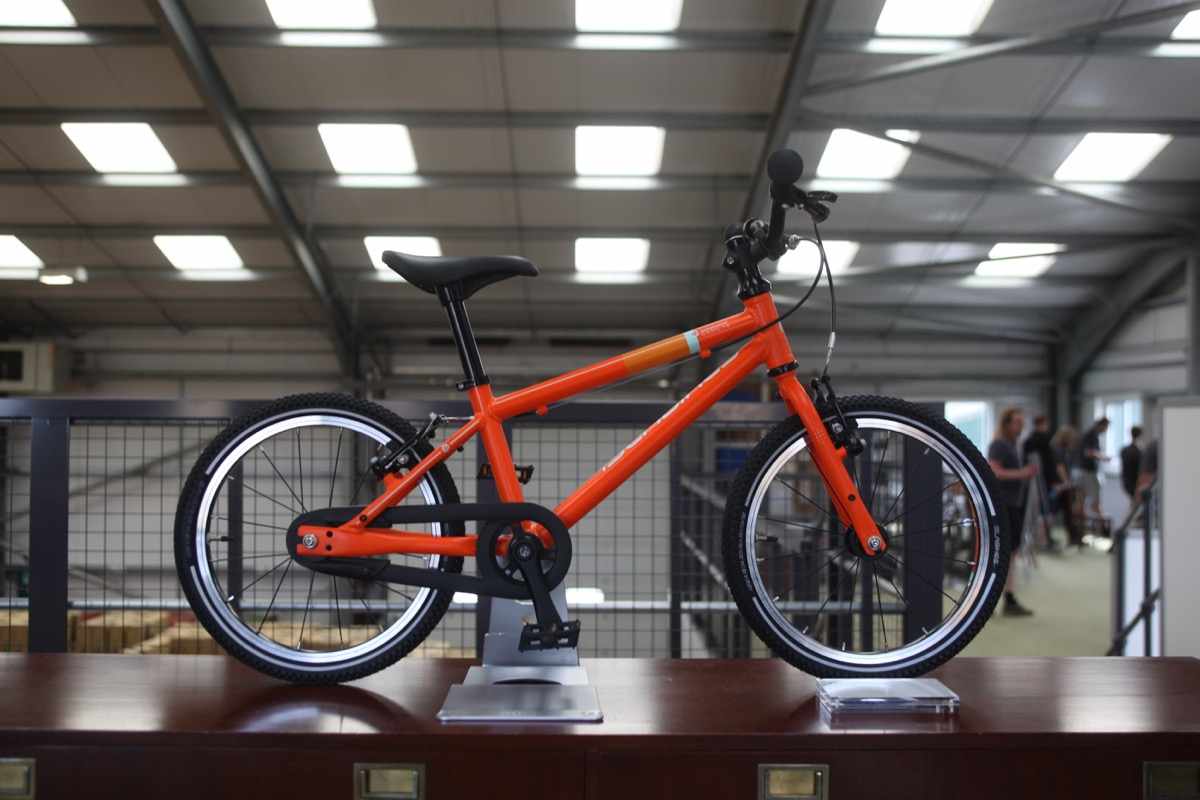
While some may groan at the prospect of more new standards, the logic behind them seems sound. Take two parallel points a fixed width apart, and draw a triangle up from them to a centre point. Now move that centre point down towards the bottom of the triangle, shortening the sides of the triangle. Now imagine the sides of the triangle are legs, and you can see that the shorter the legs of a child, the more they’re having to pedal while doing the splits – unless you can reduce the Q-factor and bring those parallel points closer together.
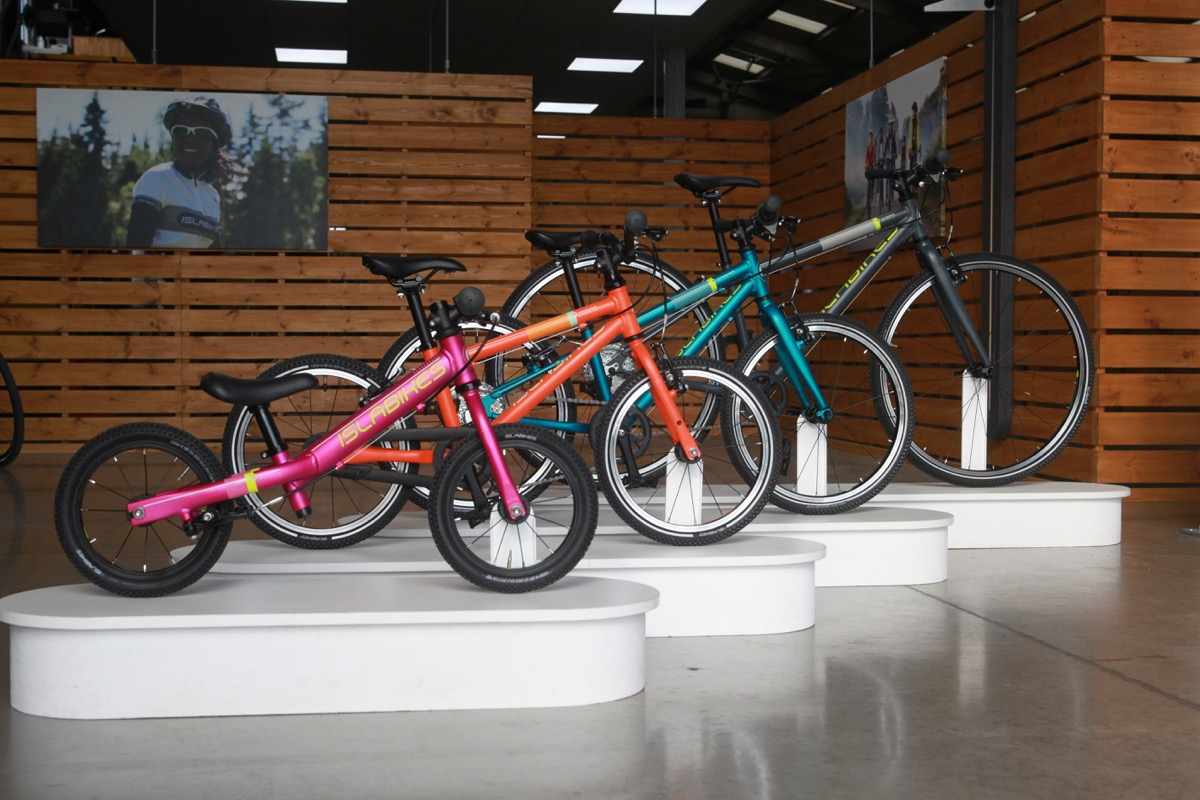
The need for these teeny tiny pedal bikes is born partly of the success of balance bikes – of which Isla was an early proponent and manufacturer. With children as young as two years old being ready to pedal, having already learnt to steer and balance, the first pedal bikes now fit children with an inside leg of just 34cm, or an overall height of about 92cm. You can get clothes for children from 18 months old in that kind of size.
It’s clear that there’s a significant amount of investment that goes into each of these developments. There’s tooling, new moulds, testing, re-testing – and all of that comes at a cost much greater than just taking an off the peg item from a factory in Taiwan. For example, the tool free chain guard that comes on all the starter bikes is a plastic component that needs three tools to make it – and came at a cost of £50,000. That’s a lot of investment for one very small element of a bike.
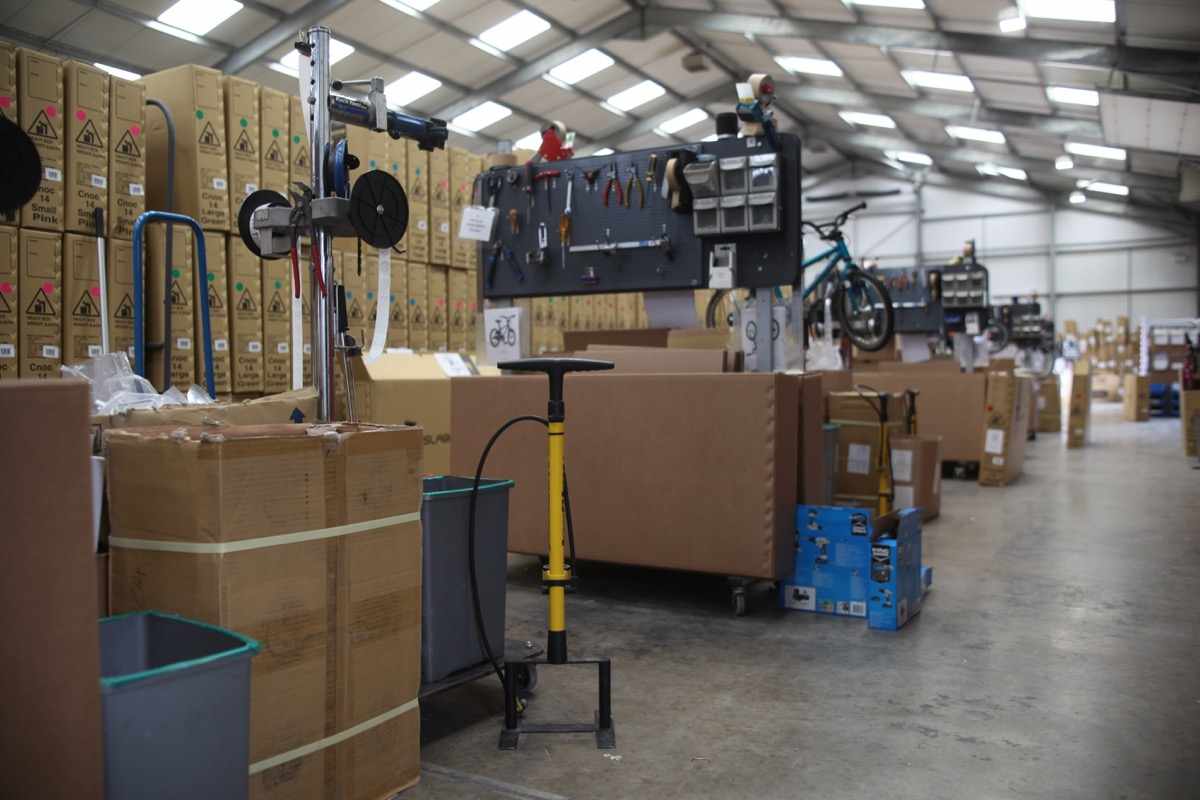

Isla isn’t shying away from investment however, and the new premises – essential to accommodate the growing company – has come at a significant expense. It’s surprising perhaps that no funding was available from the local authority to help find or build something suitable. Given the employment potential for local people, the commitment to the highest standards of terms and conditions for those employees, as well as to diversity in the workforce, you might think that would be the kind of employer an area would want to hold onto. Luckily for Ludlow, having trained her staff to the standards she demands, Isla wasn’t lured away by the lucrative grants available to employers moving to areas just over the border in the former mining communities of Wales.
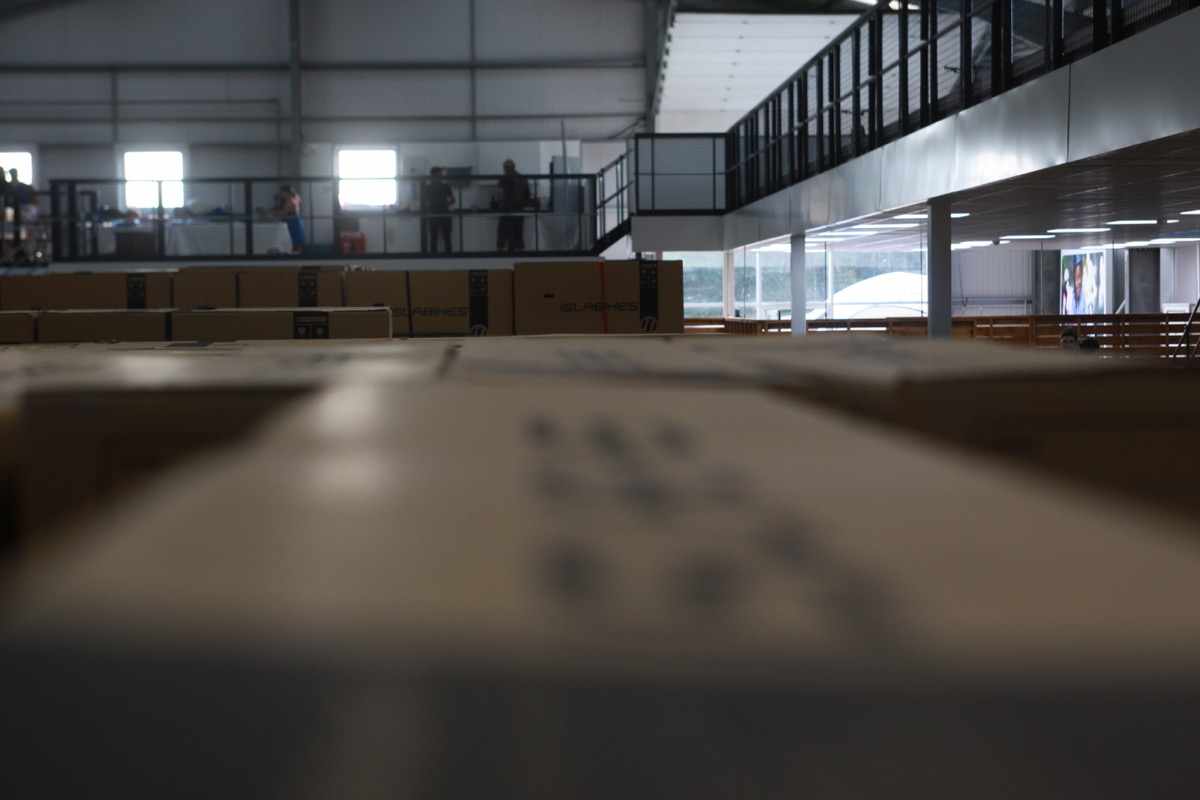
After six years of searching, Isla has moved the business a short distance to a small industrial estate just south of Ludlow. The move is small enough that there shouldn’t be any issues for existing staff to get to work, and she’s hoping that in time there might be a cycle path connecting the site to the town. It would make sense – as well as the industrial estate, there’s a school, and a road apparently wide enough to accommodate a decent cycle path.
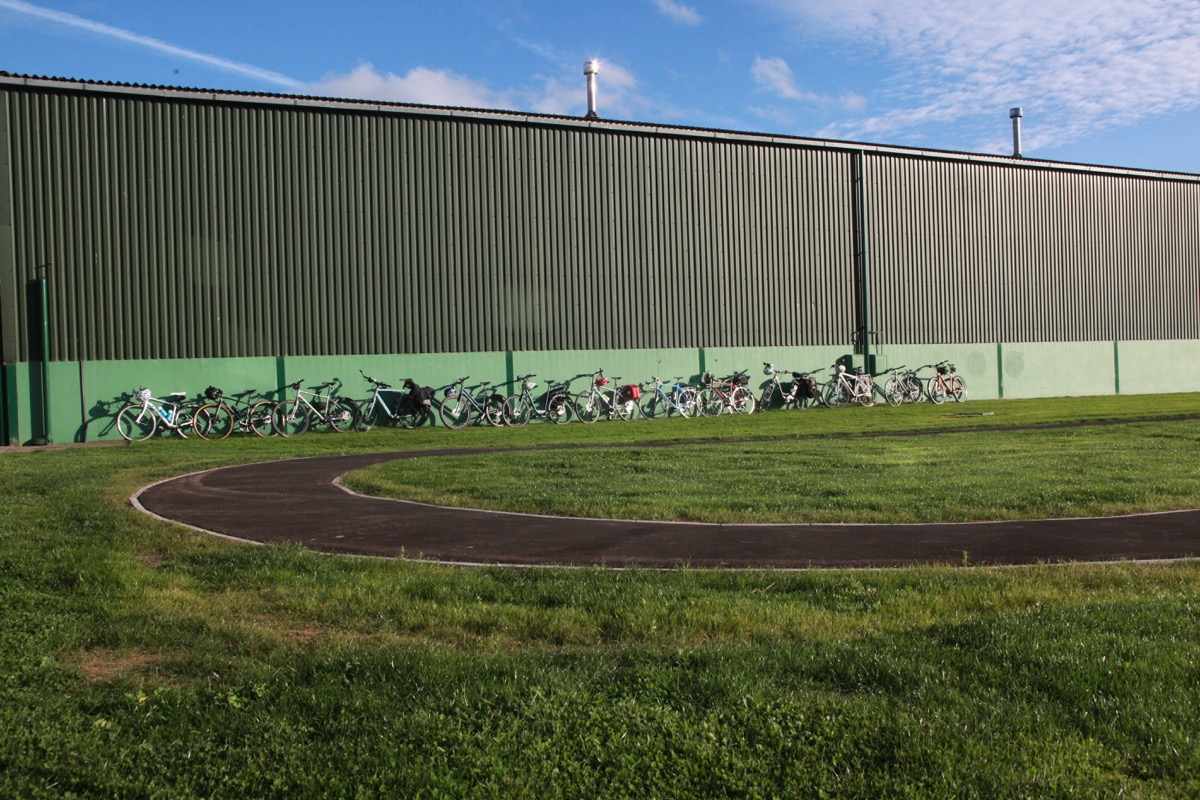
The idea of bikes as transport and bikes as a means to a better world is core to Isla’s thinking. She doesn’t just want to sell bikes – she wants them to be ridden. The ‘Pro’ series of race bikes has been discontinued, and the company is focusing on the enthusiast, leisure and utility riders. The utility folks are already where Isla wants us all to be, while the enthusiast and leisure folks are enjoying themselves – which is also good. Bikes bring joy, and perhaps loving them might also result in children choosing them over the car as they grow up.
As well as the investment in the main lineup of bikes and the premises, Isla has embarked on a whole separate endeavour, titled the ‘Imagine Project’. This seeks to completely change the model for producing and using children’s bikes in the future. Inspired by Dame Ellen McArthur’s book on the ‘circular’ or ‘closed loop’ business model, Isla set out to create bikes which would take nothing new from the earth, waste nothing at the end of their life, and be fabricated in the UK from UK materials. The current linear model of production involves mining finite resources to make bikes in the Far East and then shipping them round the world using finite-resource-powered ships to be sold, owned and resold until they reach the end of their life and head to the scrap heap.

The drivers for taking on this challenge are both altruistic and business led. We have one planet, we’re all on it, we can’t afford to use it up – that’s definitely part of the mission. More people on bikes is likely to make the planet last a bit longer – that’s another part of the mission. But the shift has financial sense to it too. As materials run out, costs go up. As countries develop, wages go up. Shortages of fuel, at the very least, are predicted to be having significant impacts in the next ten to fifteen years. Given that Isla has been working on this project since 2016, and they’re only just getting the first frames to families, that timeline doesn’t seem all that long.
If the cost of making new products is financially and environmentally prohibitive, recycling and rental makes a lot of sense. Investment up front in a bike which will last for 50 years and can then be repeatedly rented out with very little need for refurbishment in between becomes a lucrative prospect – increasingly so over time, as the return covers off the initial outlay and becomes pure profit. From a customer’s perspective, renting a bike for a growing child in the knowledge that you can get the next size up whenever you need it makes a whole lot of sense too – especially if you’re the sort of family that Isla is targeting (and trying to create) where bikes are a key mode of transport rather than a leisure activity.
The focus of development to date has been on creating four frames in 20/24/26in and 700C wheel sizes that will last the desired 50 years and meet the end of life recycling requirements. A paintless finish was required because paint gets shabby quickly, and stripping and respraying adds both financial and environmental cost. Titanium was dismissed as an option for being too environmentally damaging at the point of extraction, with stainless steel offering recycled options at both the start and end of life. Welding is TIG so that there is no need for the addition of brass – joining mixed materials compromises end of life recycling, and the argon used in it is almost benign. Initially a recycled Reynolds 304 steel from Sheffield was used, giving great ‘local’ credentials, however the raw material was too inconsistent and frames are now built from a mixture of Reynolds 304 steel and 921 tubing. It’s not a perfect UK based or circular solution, but the new material comes from mines in Germany and the processing is done in Scandinavia, so it’s not crossing whole continents.
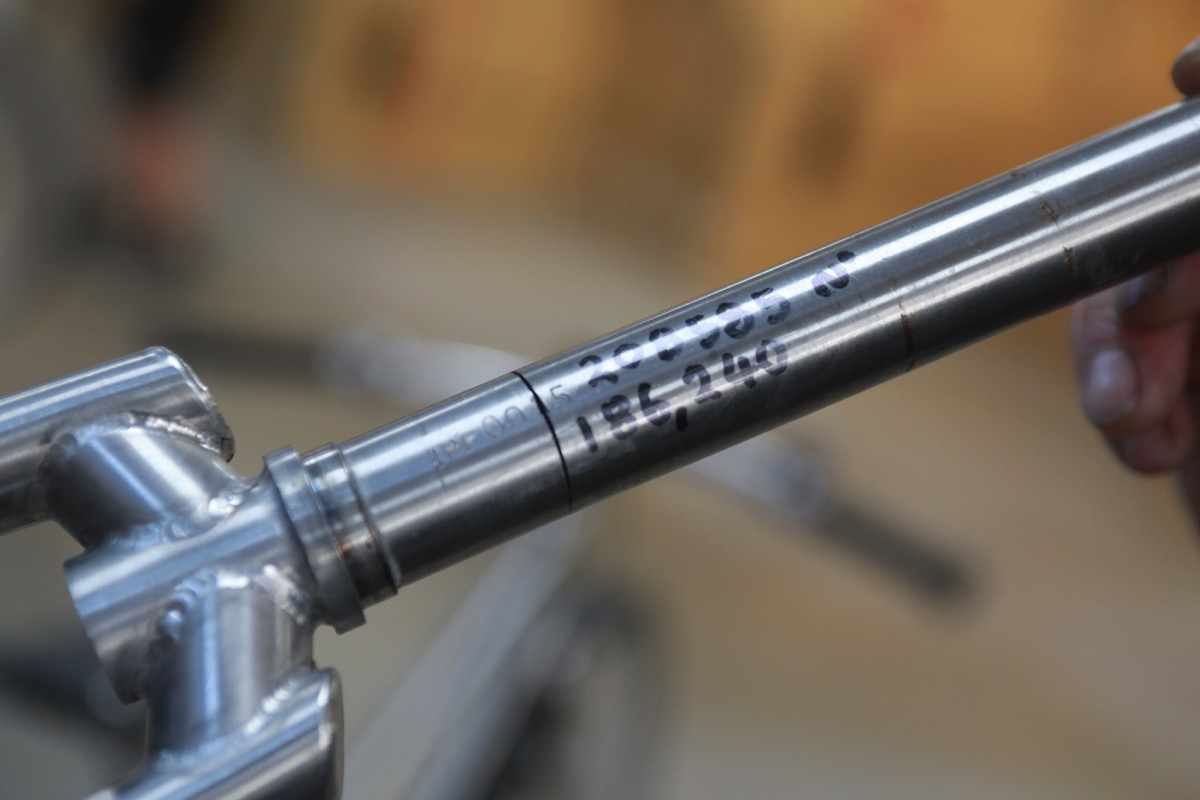
The frames are being developed and made in a secondary industrial unit away from the new premises. There’s been a lot of experimentation and discovery along the way, and unsurprisingly there’s some bits and pieces they’ve had to create specially for the project – fork crowns in a small enough size for example. There have been some surprises too – for example the discovery that the (very common) practice of stamping a serial number into a steerer tube creates a weak point for failure (after way more lifetime testing than is strictly required). They don’t stamp the numbers on any more. In order to make iterative changes and improvements to the designs, the machining is highly adjustable, and the small team there uses a selection of templates to ensure consistency across frames, rather that using pre-set jigs. There’s a bit of fiddle and faff in getting the machines set to the templates, but it allows them the flexibility needed while still in the development phase.
Designs are becoming more settled, and families are now testing them, so it’s hoped that the project will soon be able to roll out to families further afield than the relatively local test pool of the present. Since the project is targeting those who use bikes as transport, reliability risky – and the team needs to figure out how to provide quick and effective servicing to keep families rolling.
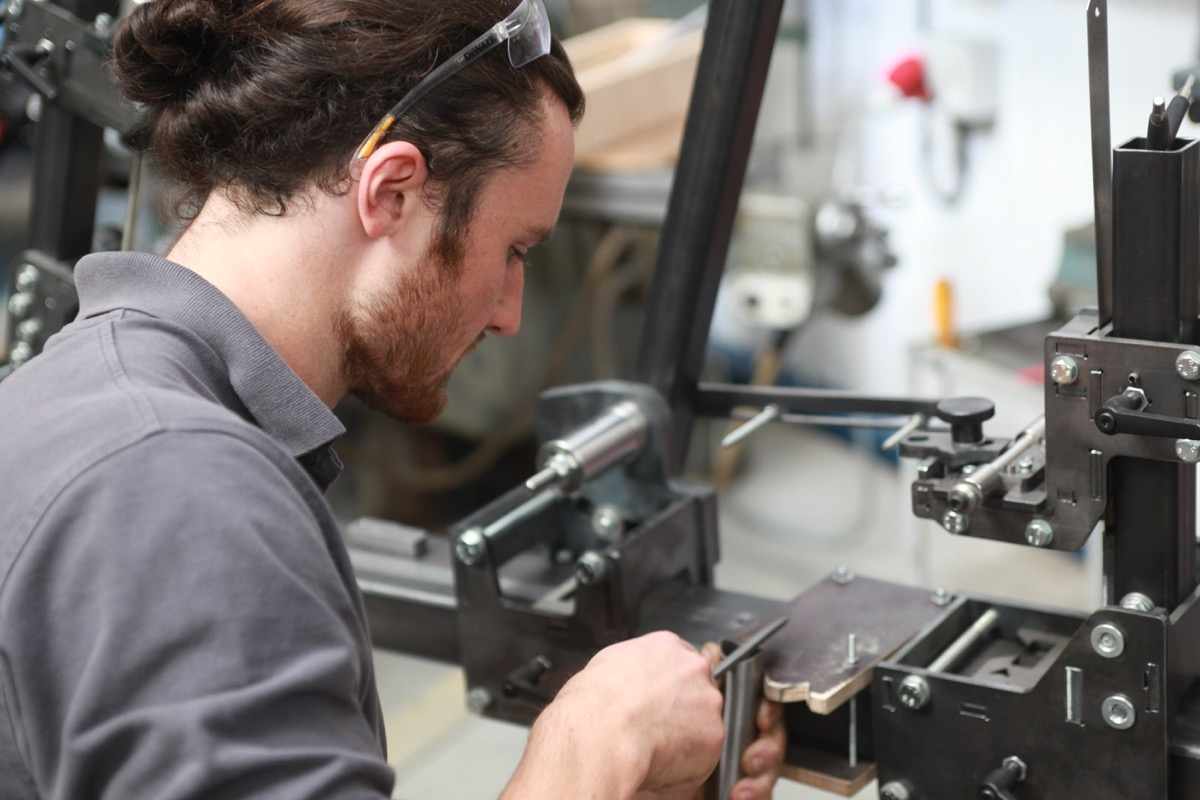
It’s hoped though that by delivering bikes which have great longevity, there won’t be too much by way of service needs in between the changing up of sizes. Away from the frame, the finishing kit is of the built-to-last variety. Chris King headsets, Sturmey-Archer hub gears and drum brakes are all chosen for their durability. It’s still no simple task however – off the peg kit doesn’t always fit at the sizes being built here, and details like the creation of their own hole pattern in the Sturmey-Archer hubs show that same obsession with proportionality that you see on the classic Islabikes range. The results are pretty much exactly what I’d choose for a commuter or pub bike, and if they made one in adult sizes I’d be at the front of the queue.

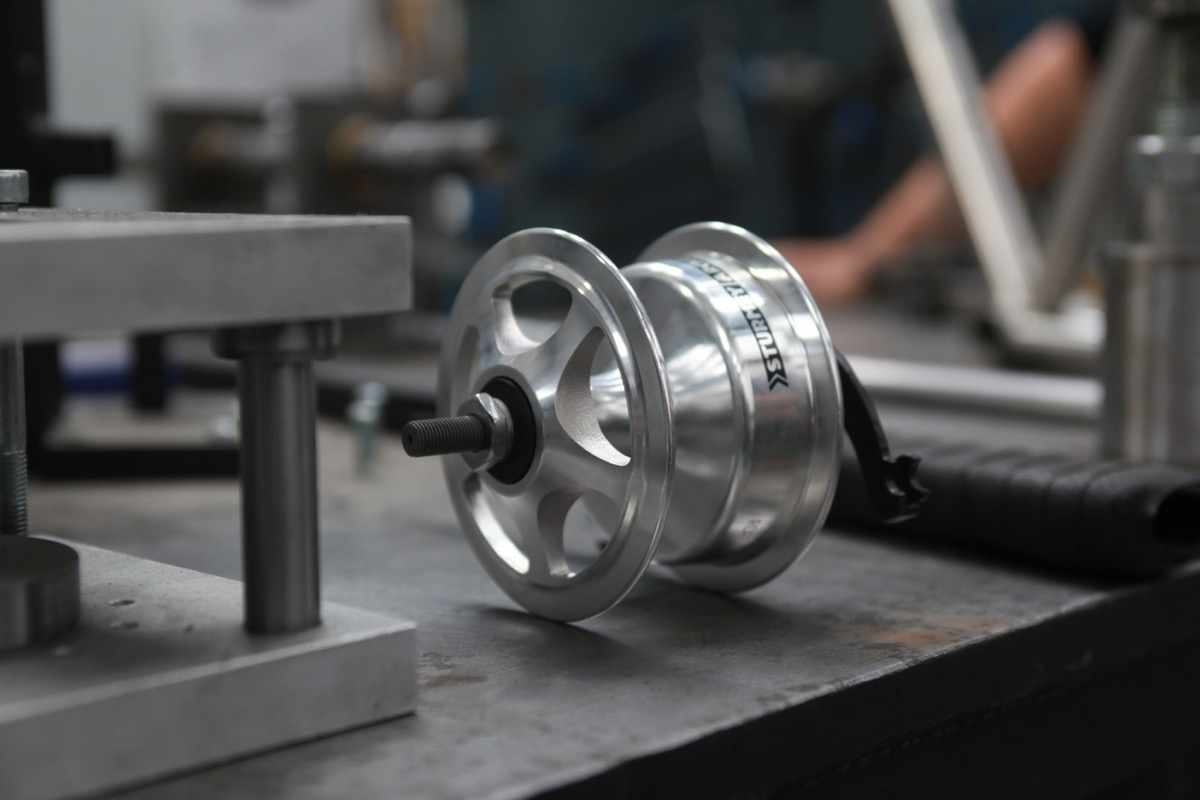
Ambitions go higher still. In making the Imagine Project bikes, the team has discovered just how many parts aren’t made in the UK – but could be. To be truly successful, the project won’t just see parents renting these bikes for their children. It’ll also see other manufactures in the UK stepping up to produce the parts that are needed, bringing manufacturing closer to home and into a more sustainable model.
Opening the new premises, Isla gave an impassioned speech about how small businesses have a real opportunity to change the way things are made, and with it our impact on the planet. On their own they may be just another small employer in a local area, but as a collective they can wield power. By choosing to support one another in procurement and innovation, they can grow together. Together, they’re a large employer and a significant tax payer – she wants that influence to be used to shift government policy towards greater sustainability, and more support for small and medium enterprises.
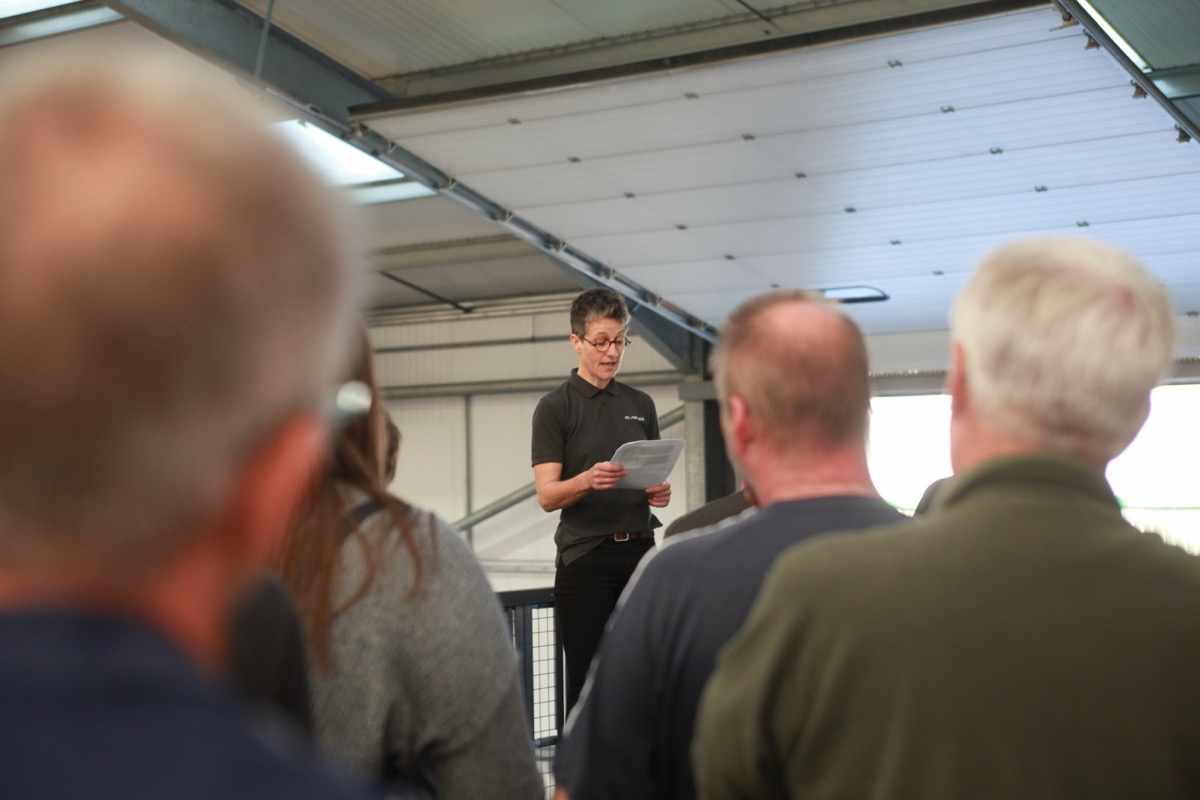
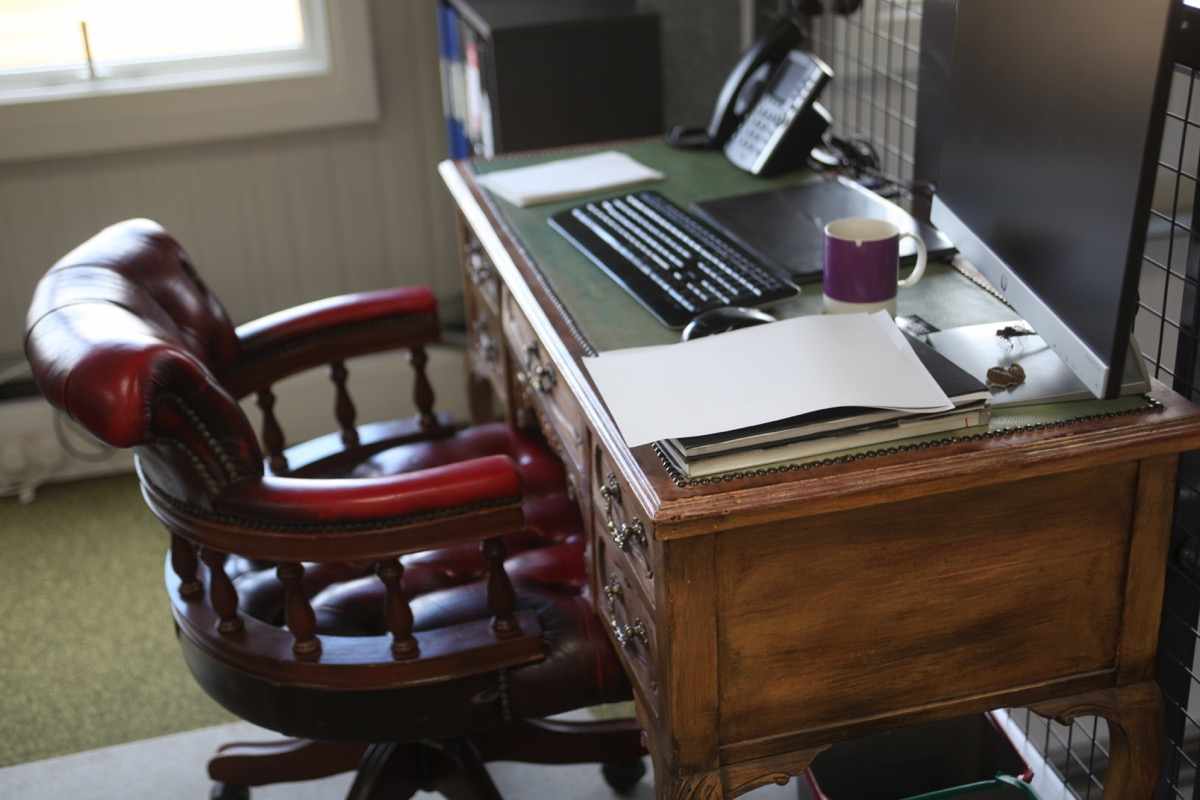
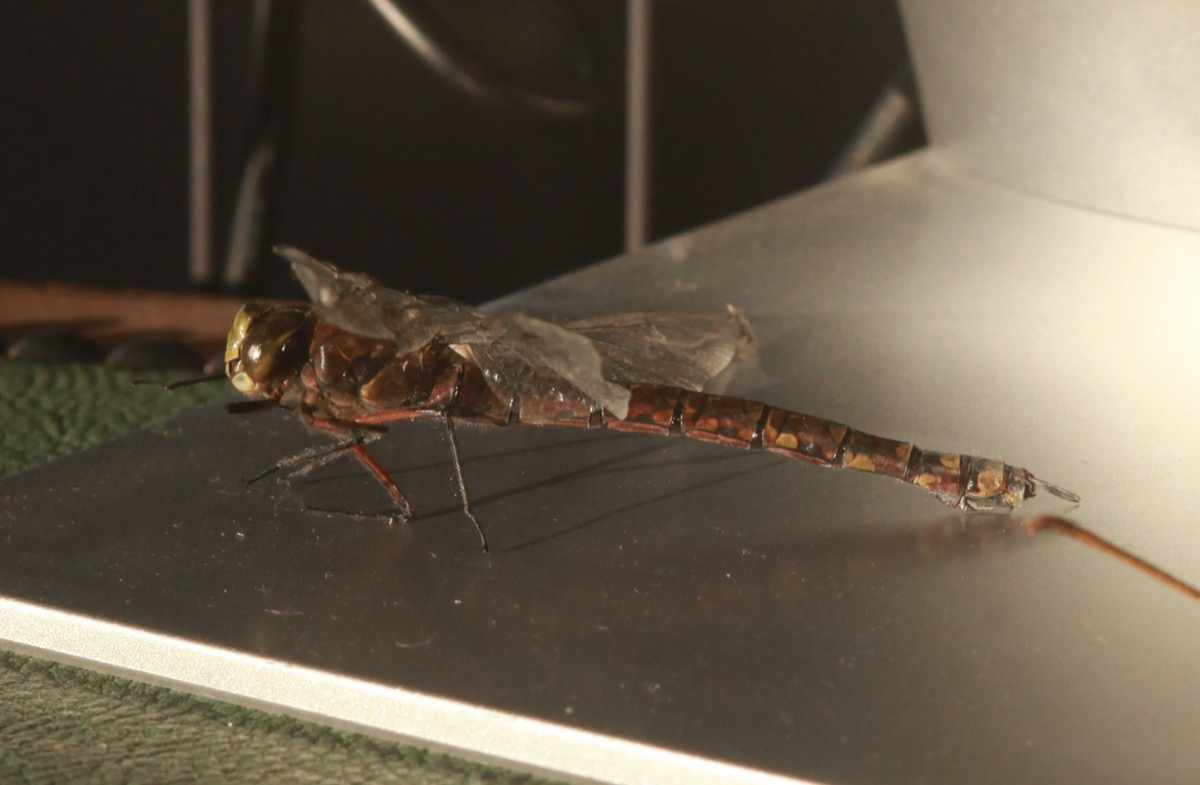
With Islabikes, Isla is walking the walk as well as talking the talk. The office and display areas are furnished with a mixture of bespoke furniture made to meet their specific needs, and second hand furniture from local charity shops. There’s little by way of hierarchy, and the office staff are based on a mezzanine that is open to the warehouse area. I do however notice that Isla has a captain’s chair and desk with a few extra frills as her workspace. The staff are employed on terms and conditions we can all be jealous off – generous paternity leave, free bikes for the family, paid sabbaticals… it’s easy to see why all the staff I talk to seem very happy to be there. Even the assembly line staff say there’s enough to hold their interest, enough progression if they want it. If you’re going to do the same tasks repeatedly, you may as well do them where you’re treated well.
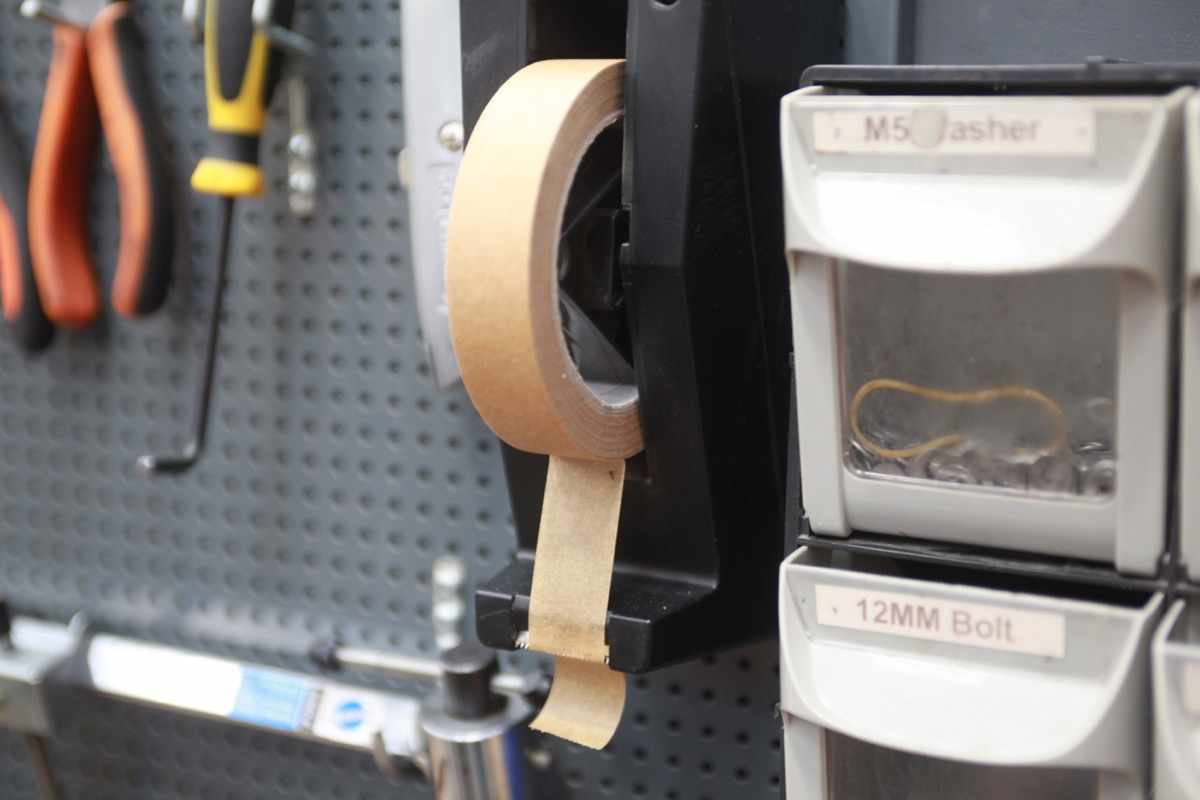
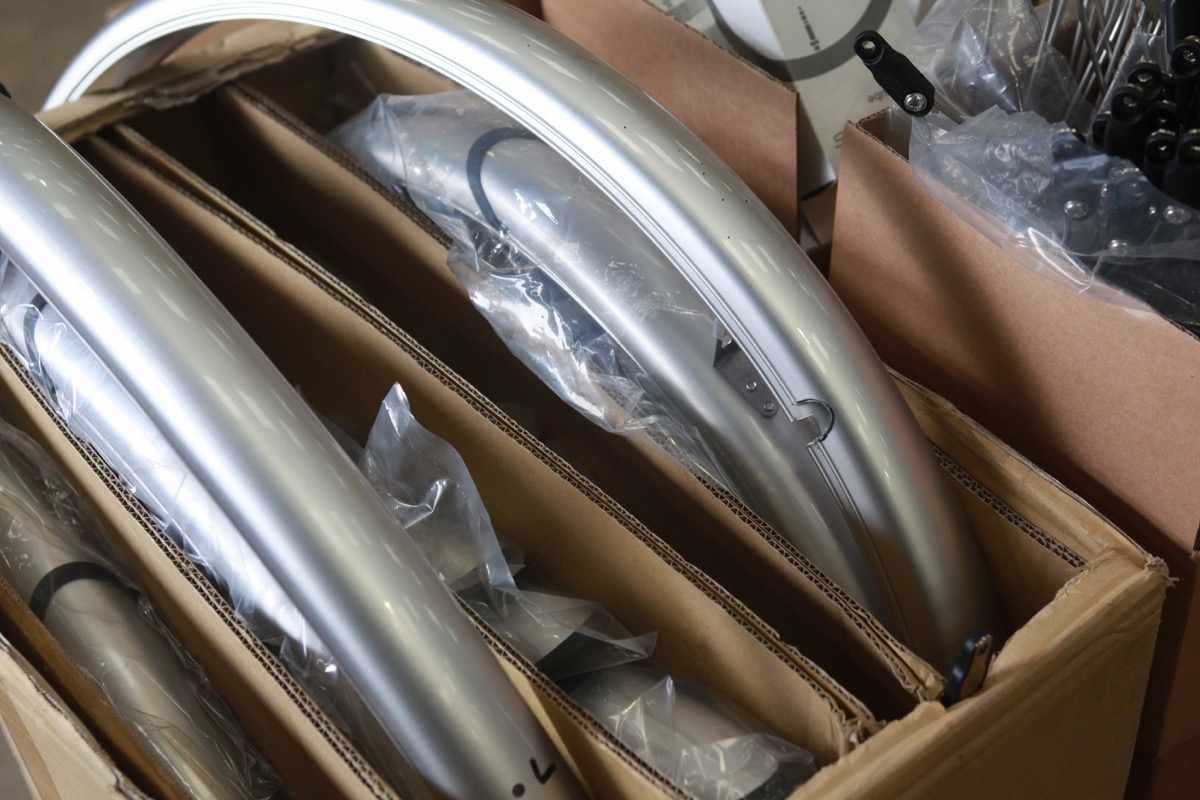
That’s not to say it’s an easy life. It’s clear that there are some very precise expectations and there’s a strong sense of a place for everything, everything in its place, and the right way to do things. I visit in September, when they’ve been in the new building for just two months. Despite that, there’s already a marked space – labelled in ‘Islafont’ – for snow shovels, with shovels ensconced. The Imagine Project site is similarly labelled up, with set locations for all the many components. Bikes are expected to be delivered to customers just-so, and the assembly staff have to build the bikes exactly as required, following a prescribed build sequence. There’s no freestyle, the dance is formal and defined – the routine is as efficient as possible. This prescription also makes mistakes rare – you can tell exactly during any build what has been checked, and what hasn’t. It’s a level of precision that Isla feels can’t be achieved at the factory in Taiwan.
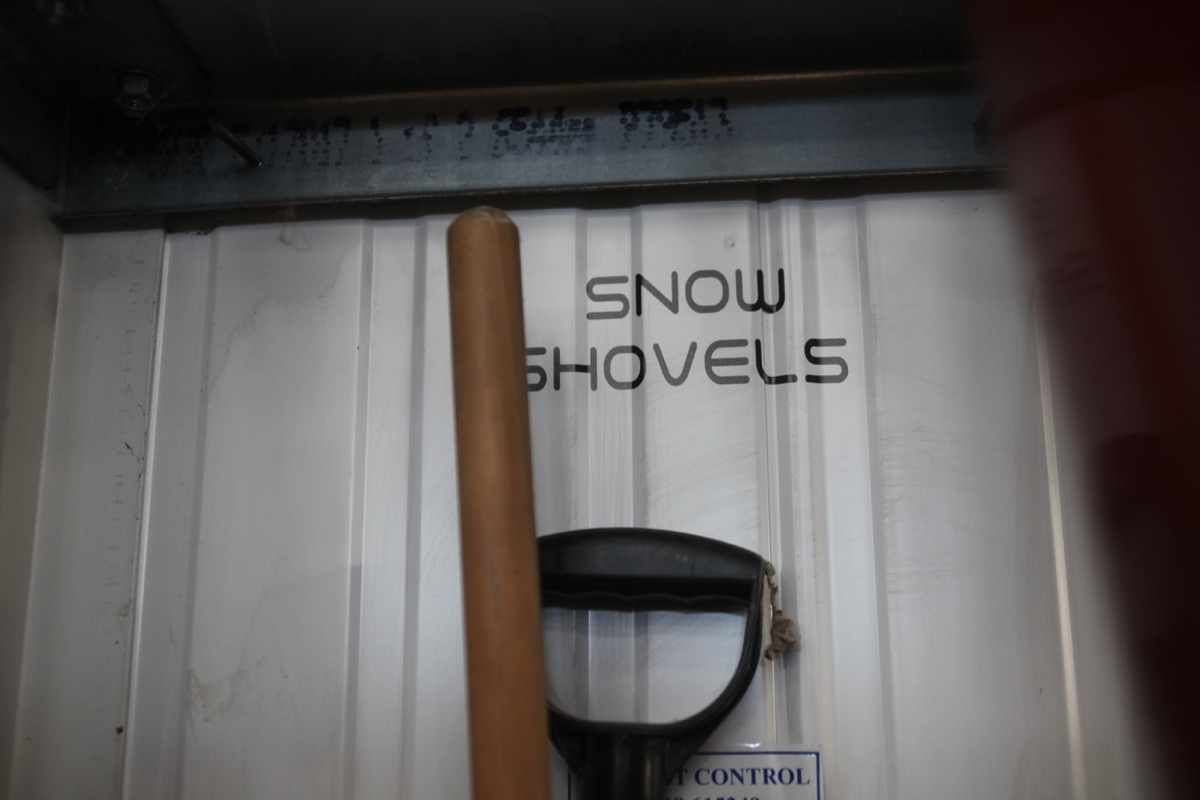
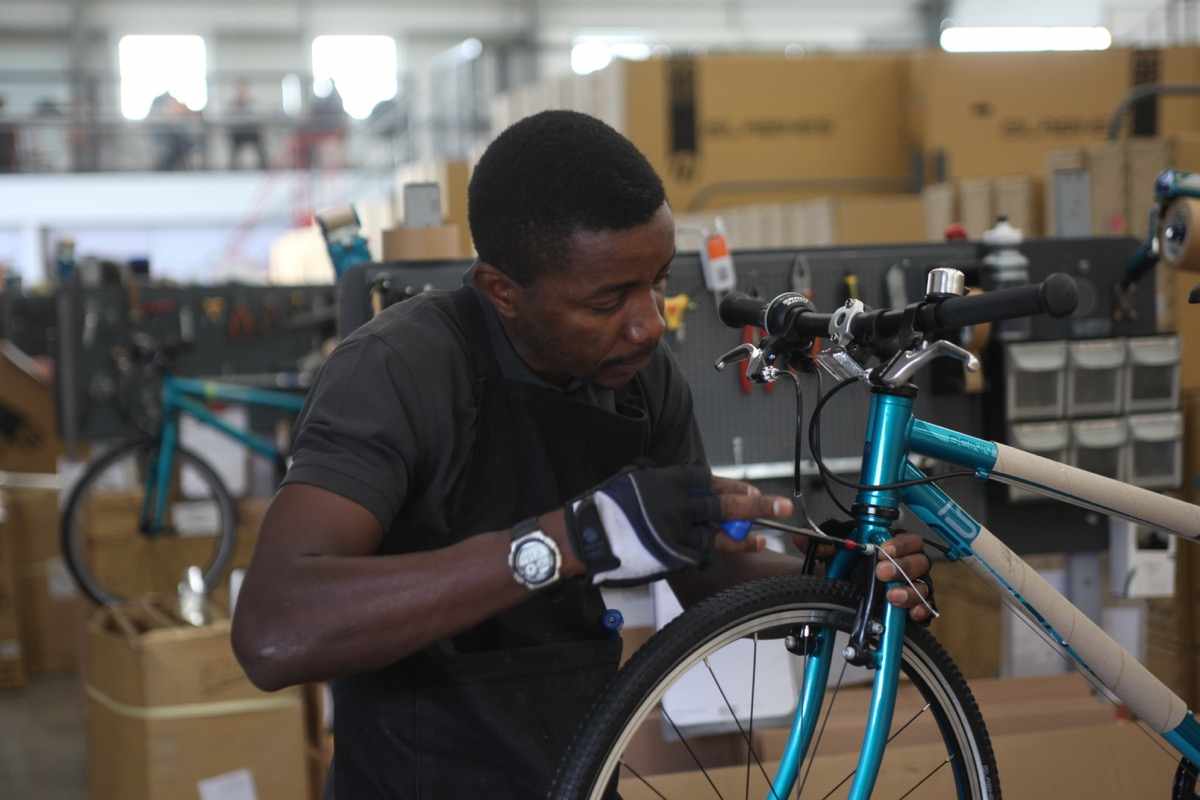
Office staff have similarly tight expectations. Desks must be clear and tidy. Customer service staff have to be able to touch type – trainees spend time between calls working on perfecting their skills. With their hands and keyboards tucked away out of sight, touch typing allows calls to be handled as efficiently as possible. With a headset on and eyes on the screen, it’s the quickest way to get customer details entered accurately. With a couple of minutes off each call, that adds up to a bunch of extra calls in a day, and that can add up to a lot of extra bikes in a week.
Despite the emphasis on order, everyone is encouraged to make suggestions for process improvements. Everywhere you look there are little experiments in different set ups, and across the business there’s a lot of bespoke making and DIY happening to meet both the ‘what if’ and ‘just-so’ needs. The assembly line work stations are now on wheels, so they can move them towards the stacks of frames as they work through the stock. Elsewhere there’s a line of stock on a sort of prototype pallet train, so that the lines of frames can be moved around. That’s being trialled because the frames aren’t shipped on pallets – you get more in a container if you’re not taking up room with bits of wood that will be discarded later. A suggestions board notes that ‘Islafont’ versions of European characters are needed, as well as the intriguing message ‘Start – singing money?’.
It’s a world of marginal gains, and little acts that add up – just like Isla hopes the individual choices she, other businesses, and bike owners make can add up to a better place. Your child may or may not notice the effect of all this effort, but if every business went to these lengths, then it’s probably fair to say we’d all feel the benefit.
Disclosure
Hannah’s travel costs were covered by Islabikes.



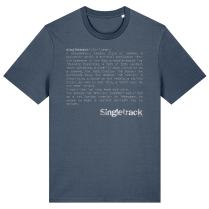
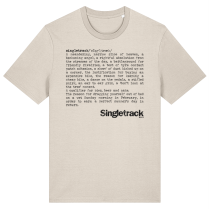










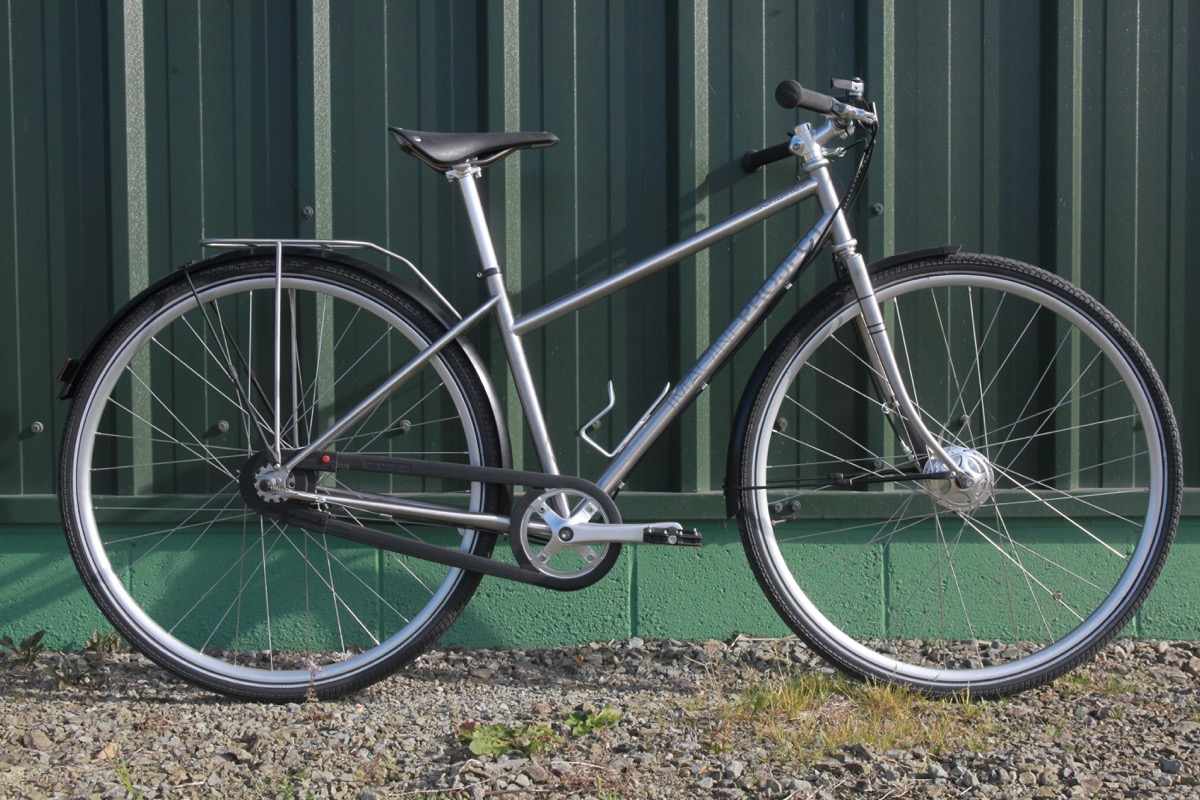




























Er the Welsh mining community is not just over the border. Over the border is rural Powys. with probably the sparsest population in England and Wales.